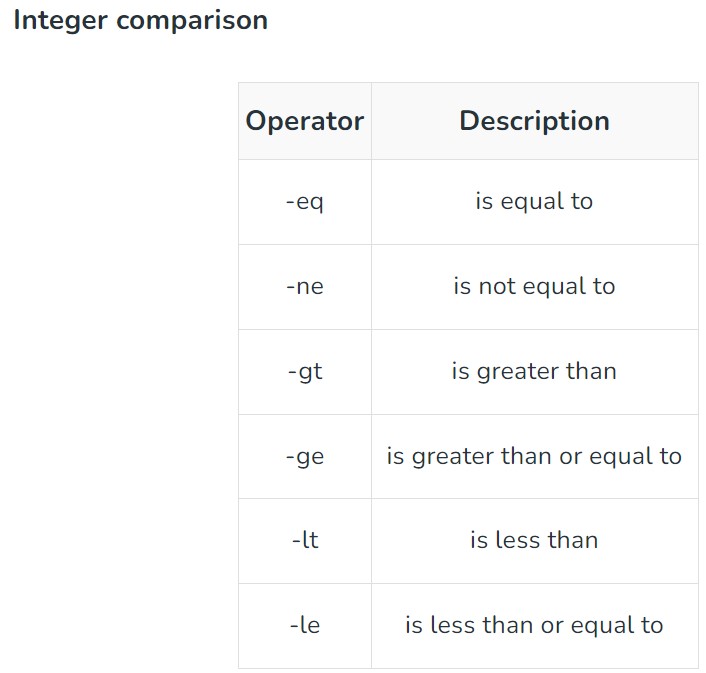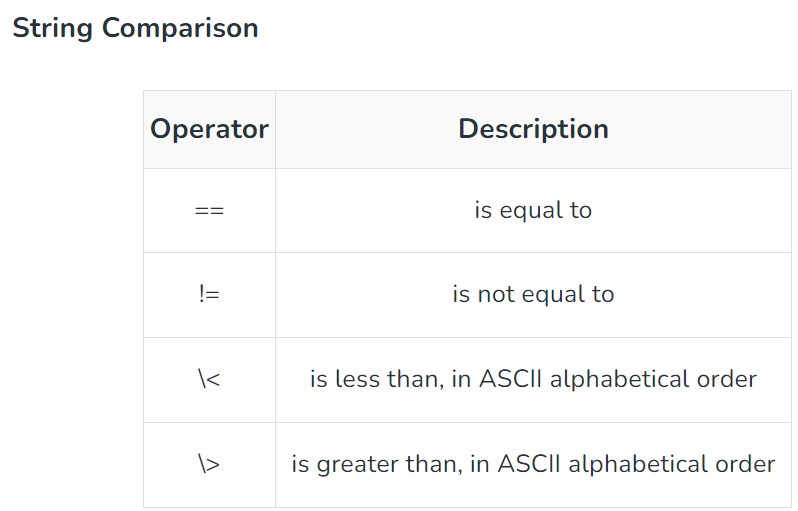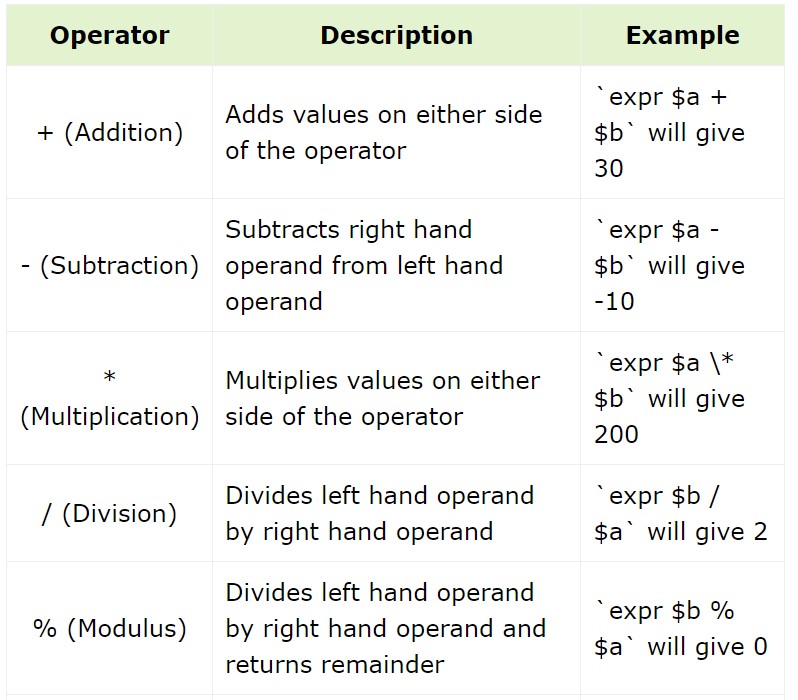Shell Scripting Variables
In shell scripting, variables are used to store and manipulate data. Shell scripts support several types of variables, including:
-
User-Defined Variables:
- These are variables that you define yourself to store data.
- Variable names are case-sensitive and can consist of letters, numbers, and underscores. They must start with a letter or an underscore.
- You can assign a value to a variable using the
=operator without spaces around it. - Example:
my_variable="Hello, World!"
-
System Variables:
- These are predefined variables that the shell uses for various purposes.
- Common system variables include
PATH,HOME,USER,SHELL, andPWD. - You can access their values using the
$symbol followed by the variable name. - Example:
echo "My home directory is $HOME"
-
Positional Parameters:
- These variables are used to access command-line arguments passed to the script or function.
$0represents the script's name, and$1,$2, etc., represent the first, second, and so on, arguments.- Example:
echo "Script name: $0" echo "First argument: $1"
-
Special Variables:
- Shell scripting has several special variables with predefined meanings, such as
$$(current process ID),$?(exit status of the last command), and$#(number of arguments). - Example:
echo "Process ID: $$"
- Shell scripting has several special variables with predefined meanings, such as
-
Array Variables:
- Shell supports arrays, which are indexed collections of values.
- You can declare an array and access its elements using square brackets
[ ]. - Example:
my_array=("apple" "banana" "cherry") echo "First fruit: ${my_array[0]}"
-
Read-Only Variables:
- You can make a variable read-only using the
readonlykeyword. Once a variable is read-only, its value cannot be changed. - Example:
readonly my_readonly_variable="This is read-only"
- You can make a variable read-only using the
-
Environment Variables:
- Environment variables are global variables that are accessible to all processes.
- You can set them using the
exportcommand. - Example:
export MY_ENV_VAR="This is an environment variable"
-
Local Variables (in Functions):
- Variables declared within a function are local to that function and do not affect the global scope.
- Example:
my_function() {
local local_var="This is a local variable"
echo "$local_var"
}
To use the value of a variable, you typically enclose its name in double quotes to ensure that any spaces or special characters are handled correctly. For example: "$my_variable".

A shell variable is a named storage location for data. Variables can be used to store any type of data, such as strings, numbers, or dates.
To create a shell variable, you simply assign a value to it using the equals sign (=). For example, to create a variable called name and assign it the value "John Doe", you would use the following command:
name="John Doe"
Once you have created a variable, you can use it in your shell script by referencing its name. For example, to print the value of the name variable to the console, you would use the following command:
echo $name
Here are some examples of how to use variables in shell scripts:
# Create a variable to store the user's name
name=$USER
# Print the user's name to the console
echo "Hello, $name!"
# Create a variable to store the current date and time
now=$(date)
# Print the current date and time to the console
echo "The current date and time is: $now"
# Create a variable to store the name of a file
file="myfile.txt"
# Check if the file exists
if [ -f $file ]; then
echo "The file $file exists."
else
echo "The file $file does not exist."
fi


Enroll Now
- Shell Programming
- Machine Learning